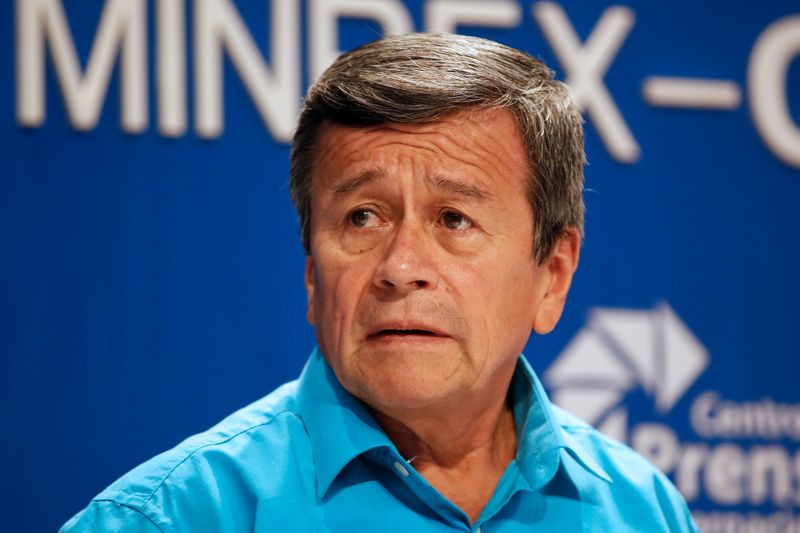By Luis Jaime Acosta
BOGOTA (Reuters) - Colombian rebel group the National Liberation Army (ELN) would be willing to participate in a global three-month ceasefire being discussed at the United Nations to contain the spread of coronavirus, the head of its negotiating team said.
The group - whose nascent Cuba peace talks with the government were put on ice after a rebel bombing killed 22 police cadets last year - hopes President Ivan Duque would also back the ceasefire, Pablo Beltran told Reuters.
On March 23, U.N. chief Antonio Guterres called for a ceasefire in global conflicts so the world can focus on the pandemic. The U.N. Security Council appears to back that call, but the 15-member body has failed to agree a resolution due to a stand-off by China and the United States over whether to mention the World Health Organization.
The ELN, considered a terrorist group by the United States and European Union, held a unilateral ceasefire during April.
"We are informed of that process. We're studying it and of course we would look favorably on that happening and that this time the Colombian government does implement it," Beltran said in a video-call interview.
"Of course, our leadership in Colombia would responsibly take up the call," he said.
Colombia, which has more than 25,000 confirmed cases of coronavirus and more than 800 deaths, has been gradually loosening a nationwide lockdown now set to last until July 1.
No ELN member has been infected, Beltran said.
Duque, whose party opposed a 2016 peace deal with the FARC guerrillas, has demanded the ELN hold a unilateral ceasefire, halt kidnappings, free hostages and abandon the use of landmines and the forced recruitment of minors for talks to resume.
The ELN is willing to make gestures like freeing hostages, Beltran said, but other efforts to deescalate conflict must be agreed at talks.
The group's "willingness to find a political solution to the conflict" remains, he said.
Duque's government has requested Cuba extradite Beltran and other negotiators on charges related to the police academy bombing in January 2019, but the ELN says if talks do not restart the team should be allowed to return to guerrilla areas in Colombia under the original terms of the negotiations.
"It's a critical point," Beltran said. "We have told them our delegation is here, send your delegates. If you don't, return this delegation to Colombia."

The breakdown of ELN negotiations with previous governments has been put down to the group's devolved command structure and disagreements within its ranks.